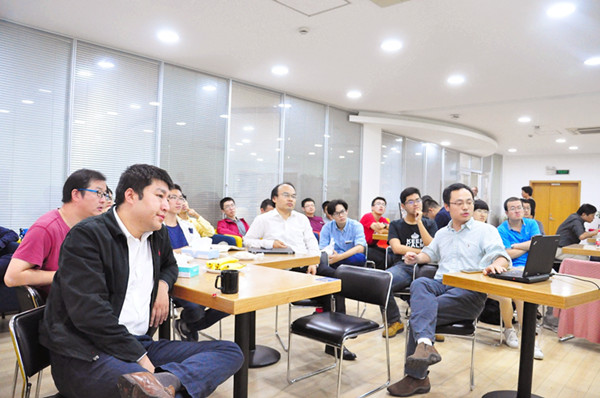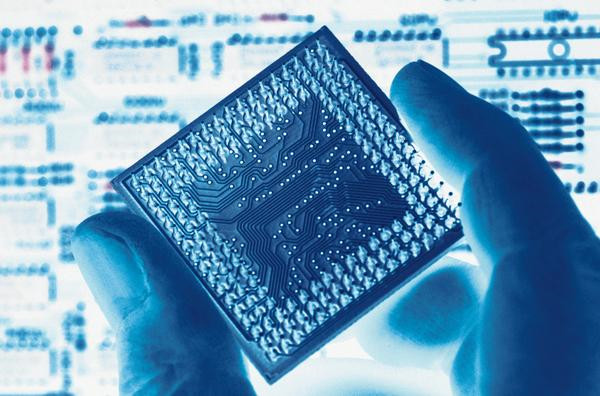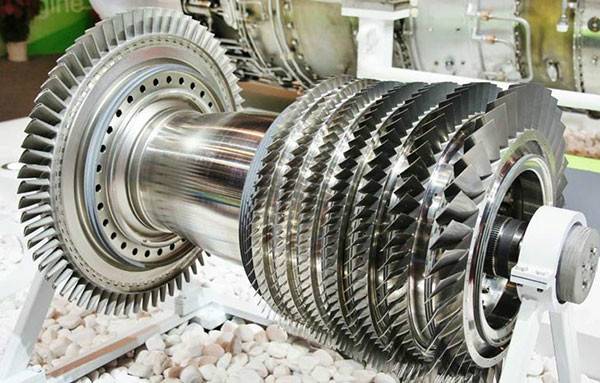The University of Michigan- Shanghai Jiao Tong University Joint Institute (UM-SJTU JI) stands at the forefront of technological innovation with its unique academic atmosphere and advanced scientific explore. JI boasts a strong research team, which keeps innovating and strives to produce results that will lead the industry and ultimately benefit the human beings.
In order to help the public discover the mystery of scientific research, JI has launched a series of mini-workshop to introduce faculty’s research.
 Professor Hua Bao(right front)introducing the theories and applications of thermal conductivity
Professor Hua Bao(right front)introducing the theories and applications of thermal conductivity
At a recent mini-workshop, Professor Hua Bao gave a talk titled “Thermal Conductivity at Nanometer Scale: Theories and Applications” which invoked an enthusiastic discussion.

 Application of heat conduction in CPU chip and aero engine turbine blade
Application of heat conduction in CPU chip and aero engine turbine blade
The effect of heat transfer plays a vital role on the performance of materials, which can be as small as the CPU chip or as large as the thermal barrier coating on spacecraft’s surface. At the micro-nano scale, the macroscopic heat transfer theory such as the Fourier heat conduction law or the Stefan-Boltzmann radiation law is no longer valid. Replacing them are a new series of heat transport phenomena such as ballistic transport, interface thermal resistance and so on. In the heat dissipation process of micro-nano electronic components, the material’s barrier to heat dissipation is negligible. Comparatively, the multi-layer interfaces during the heat transport pose a significant obstacle. Therefore, the research of the interaction between the interface and thermal conductivity shall contribute to a better thermal design. Low-dimensional materials such as graphene and carbon nanotubes have extremely high thermal conductivity. For example, the thermal conductivity of graphene is 10 times more than that of copper, so graphene-based composite materials are widely used in electronics device cooling applications. The ceramic thermal barrier coating on the aero engine turbine blades requires a microporous structure to further block the heat transport in order to avoid damage to the blades by the high fuel temperature. In these applications, there is a lack of appropriate theoretical guidance on heat transport, so an in-depth study of micro-nano-scale heat transfer is particularly important. Therefore, Professor Hua Bao and his team are working on micro-nano-scale heat transfer related research such as materials for microelectronic heat dissipation and functional heat conduction (insulation).

Hua Bao is currently an associate professor at JI. He received his Bachelor of Science degree from Tsinghua University in 2006 and a doctoral degree from Purdue University in 2012. In 2011, he won the Bilsland Dissertation Fellowship, which provides support for outstanding doctoral candidates to complete their final year of study. He joined JI in 2012 as an assistant professor and was awarded funding from National Science Foundation of China (NSFC) in 2013. Professor Bao’s research focuses on the simulation of heat transfer, from the atomic to continuum scale. His research has potential applications in thermoelectric conversion and heat dissipation of microelectronic devices. Professor Bao’s research team has published many papers in internationally renowned journals, with topics including first-principles simulation, molecular dynamics simulation, numerical solution of Boltzmann transport equation and continuum scale modeling.
The JI Mini-workshop aims to promote scientific research exchange and collaboration among JI faculty members and researchers. We will continue to introduce their research topics, so stay tuned!





